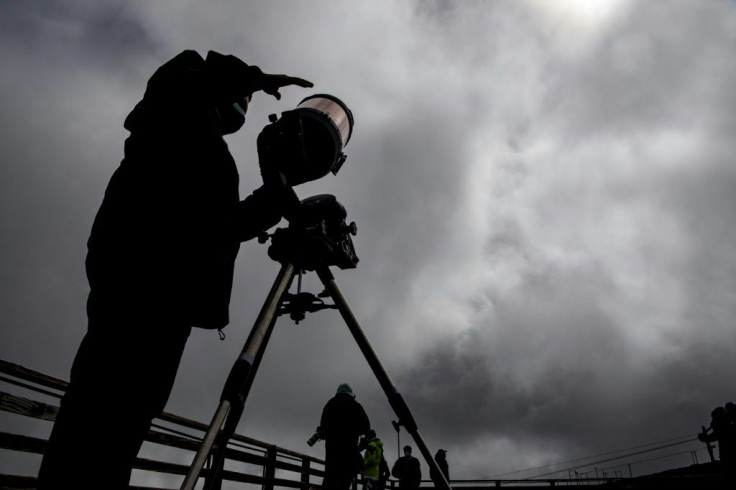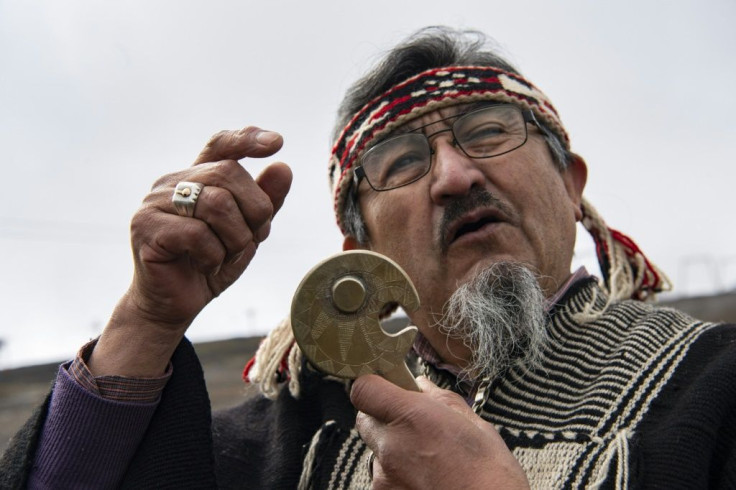Rain Threatens To Ruin Eclipse Viewing In Chile's South
Thousands of tourists and residents in Chile's south saw their hopes of watching a total eclipse of the sun shrink as heavy rain fell on Monday just hours before the expected solar show.
Despite restrictions on movement imposed by authorities to slow the spread of the coronavirus pandemic, almost 300,000 tourists have arrived in the Araucania region around 800-kilometers (500 miles) south of the capital Santiago.
But heavy rain, clouds and strong winds meant few had ventured out into the streets by late morning.
Dozens of scientists have set up telescopes on the slopes of the Villarrica volcano -- one of the most active in Chile -- to observe the phenomenon when the moon passes between the sun and Earth.

The eclipse is due to last just over two minutes at around 1:00 pm (1600 GMT) and be visible along a 90-kilometer wide corridor from the Pacific coast in Chile across the Andes mountain range and into Argentina, where there were clear skies but strong winds affecting visibility.
Weather forecasts in Chile say there is a 90 percent chance the rain will continue during the eclipse, which would render it invisible to stargazers.
In Argentine Patagonia, several families and foreigners had set up camp between the towns of Villa El Chocon and Piedra del Aguila hoping to see the eclipse.
It will be the second eclipse over Chile in just 18 months.
Some 300,000 people turned out in July 2019 in the Atacama desert in Chile's north, home to several observatories, to see the previous one.

This one is eagerly anticipated amongst Chile's Mapuche indigenous community, the largest such group in the country's south.
In Mapuche culture, an eclipse signifies the temporary death of the sun during a battle between the star and an evil force known as "Wekufu."
Indigenous people used to worship the sun "like a God," astronomer Jose Maza told AFP last week.
According to indigenous expert Juan Nanculef, the people would light bonfires and fire "stones and arrows into the air" to help the sun in its battle against the Wekufu.
Even if the eclipse -- which needs to be seen through special glasses to protect the eyes -- isn't visible, night will descend over the area for a couple of minutes.
Nanculef for one hasn't given up hope of seeing the eclipse, though.
The Mapuche wiseman told AFP he would perform a ritual as the eclipse begins to ask nature to bring an end to the rains.
"Previously it was 100 percent effective," he said. "I'm going to try it."
© Copyright AFP {{Year}}. All rights reserved.





















